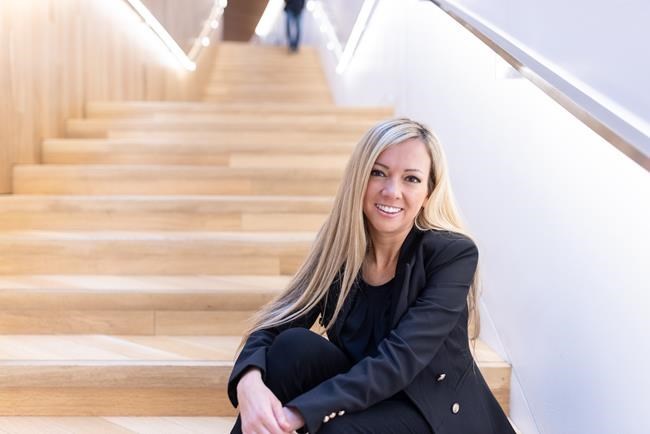As the higher cost of living continues to squeeze household budgets, many Canadians find they have even less left over at the end of every month to squirrel away for the future.
Some might be feeling shame that they weren't able to save enough over the last few months and are internalizing that emotion, said Kalee Boisvert, a financial adviser at Raymond James Ltd, in an interview.
"I would say it's more so people feeling guilty that they're not saving enough, that they wish they could do more," Boisvert said.
"I'm hearing this from a lot of people, so, recognize that we're going through a really tough season."
While the cost of mortgage payments, rent, consumer debt — essentially everyday life — has jumped exponentially over the past few years, many household incomes did not keep pace — slowly chipping away at monthly savings quotas.
People often feel their inability to save enough is their personal responsibility, but the affordability crisis is happening externally, said Chantel Chapman, the CEO and co-founder of Trauma of Money.
"If there are affordability issues, we need to ask, 'Whose shame is this,' or 'Whose guilt is this?'" Chapman said.
Most of the household income could be going toward paying bills on time, maintaining a roof over their head and putting food on the table, she said. There may not be enough after that to put into savings.
"Those feelings of guilt — we need to question them," she said.
She added people don't have control over external factors such as an economic slowdown, mass layoffs, high rental costs and interest rates.
A December Coast Capital study showed more than a third of Canadians felt financial shame and half of survey respondents said their mental and emotional well-С����Ƶ was affected by the finances.
But there's a way to break the guilt cycle, Chapman said.
It starts with noticing the narrative. Pointing out what a person might be telling themselves — 'I'm stupid and bad with money because I'm not saving (but) everyone else is saving,' she said, and realizing its affect on the nervous system.
The effects can be skin becoming flushed or throat constricted, Chapman explained. Once her clients start to notice the correlation between the narrative and the bodily response, she asks them to identify who the guilt belongs to — is it internal or external?
This helps regulate the nervous system, Chapman said, and makes room for practical steps such as reviewing budgets, adjusting priorities around spending or simply talking about it with a friend.
De-personalizing guilt is the last step to breaking the cycle, Chapman said, especially for those who think it is entirely on them for not saving enough.
"We (need to) zoom out of ourselves," she said.
"The whole world has completely shifted, so of course money behaviours are going to shift," Chapman said.
Boisvert said many workers, who maintained their jobs during the pandemic, were able to save huge portions of money during pandemic-related restrictions. As normalcy returned, so did the spending — travelling, dining out, going into the office, among others.
"There's an element of comparison to what they were able to put away a couple of years ago," she said. "Now, they're feeling like it set a higher watermark for them."
Comparison with others also plays a role in savings guilt, said Jessica Moorhouse,a money expert and host of the More Money podcast.While comparisons aren't new, social media has made it worse, she added.
"The comparison game has shifted and now we just feel like, 'There's no way I can possibly keep up with anything,'" she said.
And that guilt is often present across ages no matter how frugal people have been, Moorhouse said.
For young people, the guilt is that they're not saving enough for a down payment on a home. People who have started families feel guilty for not saving enough for their kids. Those with retirement on the horizon have been feeling guilty for not meeting the savings goal they had in mind.
While С����Ƶ frugal or cutting back on expenses could help, there are other ways to increase savings.
Boisvert said people should take advantage of employee benefits and matching plans for extra savings and focus on long-term goals.
"This could be for a season. This might not last forever," she said, suggesting to track progress on long-term goals.
Getting creative and diversifying income streams can help boost your savings.
Moorhouse suggested getting a second job on the weekends, starting a side hustle or even changing jobs to increase your salary.
"I tell people to spend less and earn more," she said. "That is the thing that works."
This report by The Canadian Press was first published May 7, 2024.
Ritika Dubey, The Canadian Press




